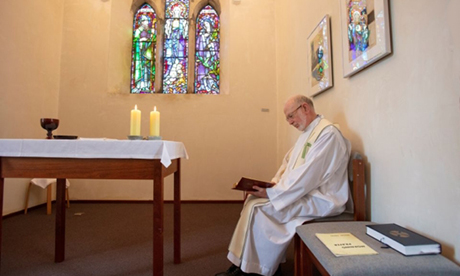Many Irish priests are abandoning online broadcasts of masses due to anxiety created by digital reviews.
As in many countries, churches and other places of worship in the Irish Republic have significant restrictions. Priests are required to say mass in empty or near-empty churches.
To reach parishioners, masses have been broadcast online since restrictions on attendance were put in place to combat the pandemic.
The Association of Catholic Priests (ACP) said the expectation among parishioners that mass will be said online had produced a slew of comments and reviews.
This was putting its members under pressure to perform and causing a form of digital stage fright.
Father Tim Hazelwood, a spokesman for the ACP, said a lot of priests had felt “forced” into putting their services online. A number had subsequently stopped because of “judgment” from viewers.
“And there is a group of ‘mass hoppers’ who go from mass to mass, and unfortunately some of them pass comments that are very hurtful.”
Fr Gerry O’Conner from the Scala Community in Cork city said priests can see how many views they have received and comparisons are being made.
“We are aware that people have their favourite online liturgies. They think some are better than others. There are reviews and analyses and comparisons being made,” he said explaining why priests are abandoning online masses.
“Like anyone else, priests can be sensitive.”
While the idea of priests suffering digital stage fright may sound like a Covid-compliant plotline from the television comedy Father Ted, the ACP said its members were dealing with multiple pressures caused by the pandemic.
The average age for a priest in Ireland is 72. Many live alone as the Catholic Church copes with dwindling congregation sizes and an ageing priesthood.
Father Hazelwood said his colleagues were facing issues such as reductions in church income of up to 60 per cent while also having to adjust to old age.
He told the AGM: “Our energy levels are falling. Our health and our fitness isn’t as good as it was. We have to recognise that what we could do before, we can’t be expected to do now.”
